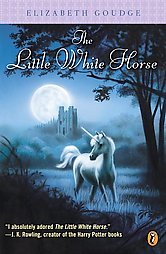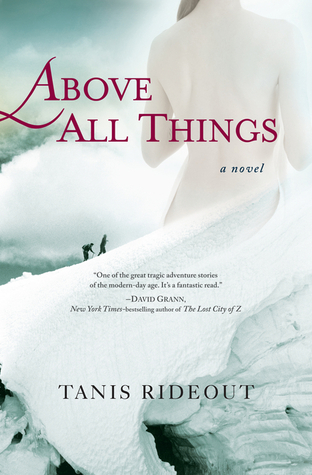Requiem is the third and final book in the Delirium trilogy. Lena is now an active member of the resistance, and she is transformed. She's at the center of the fight. "After rescuing Julian from a death sentence, Lena and her friends fled to the Wilds. But the Wilds are no longer a safe haven—pockets of rebellion have opened throughout the country, and the government cannot deny the existence of Invalids. Regulators now infiltrate the borderlands to stamp out the rebels, and as Lena navigates the increasingly dangerous terrain, her best friend, Hana, lives a safe, loveless life in Portland as the fiancée of the young mayor. Requiem is told from both Lena’s and Hana’s points of view. The two girls live side by side in a world that divides them until, at last, their stories converge." There's also the fact that Alex is back, and not talking to her, and as well as the dangerous rebellion, she has all these emotions, and she's really confused about everything.
I feel like this series has just gone downhill. I loved Delirium, liked Pandemonium, and Requiem was just...meh. The writing was still good, but I didn't like any of the characters and it was just too over-the-top YA. It's not enough that we have a dramatic story about a rebellion against a society which views love as a disease: we have to have a love triangle! I don't generally like love triangles (with a few exceptions), and this one basically consists of Lena encouraging Julian to make Alex jealous. Great. It was also blatantly obvious who Lena's choice would be. That's really not what I wanted to read about. Plus, the covers of all three books are just hideous. The model is just glacial looking, and her skin is too unnervingly perfect. No one looks like that, however good their complexion is. The lack of any blemish actually makes her look ugly. Also, I felt that Lena was really, really selfish in certain parts of the book, like when she was considering leaving Coral behind. There was also a lot of cursing in Requiem, which I didn't remember from the first two books at all. That was fine, but a little strange.
Nevertheless, one must admit that Requiem is really gripping. I wanted to read more, and I wanted to find out what was going to happen to the characters, even if they suddenly weren't the same people they were in the first two books. The plot was still interesting, and I liked the alternating narratives; Hana's particularly was really interesting and offered a lot of insight.
It was mainly the first few chapters that annoyed me; after that, the book got somewhat better, and I did really enjoy it for the most part, mainly because it was so gripping. But the little, uber-dramatic quotes from the back of the book really annoy me. Because as I said, it makes the book so teenage-girl YA like, and that's really not a good thing. Like, on the back of Pandemonium: "The old life is dead. But the old Lena is dead too. I buried her. I left her beyond a fence, behind a wall of smoke and flame." Those excerpts are basically the worst parts of the book. But I guess some teenage girls like that sort of stuff. Not I.
The ending was...ambiguous, and I both liked and didn't like it. It didn't feel like a good ending for the whole entire trilogy, and now I want to know what happens next, but I did like that it didn't tie everything up neatly; Lauren Oliver could return to this world if she wanted to. I still feel like that at the end of an entire trilogy, there should be a bit more than what was offered. Almost nothing was wrapped up, and that was too much vaguenss.
I ended up feeling ambivalent about Requiem, and it's certainly the worst book of the series. As I said, it was mainly the first three or four chapters that were incredibly annoying. And the cover.
Read Requiem:
- if you enjoyed Delirium and Pandemonium
- if you like dystopia
- if you like YA romance
Rating: **














